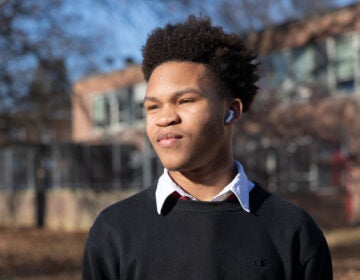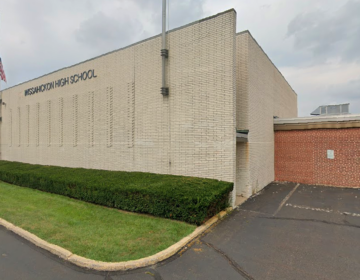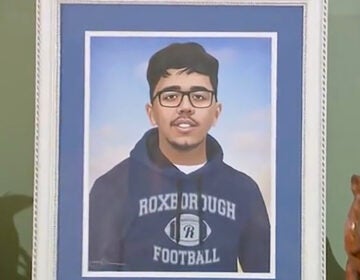Former Eagle Brian Dawkins wants Philly students to speak openly about mental health
In the wake of a mass shooting that left eight teens injured, Dawkins spoke to Philly students about the importance of dealing with trauma.
Listen 1:56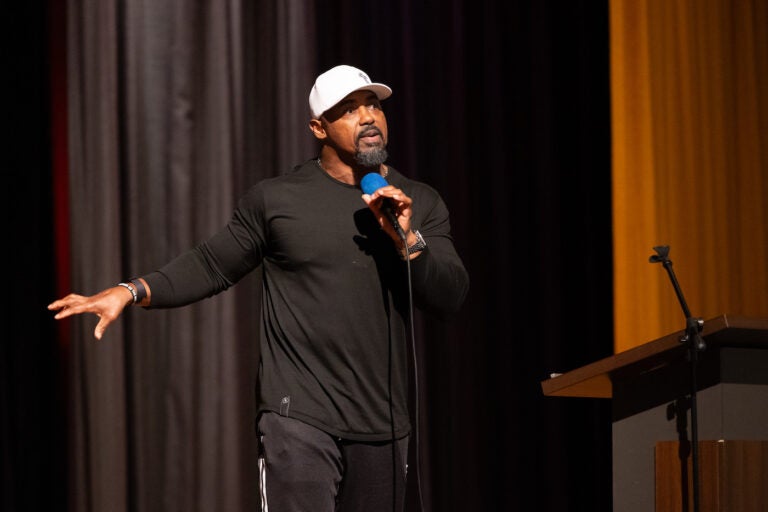
Former Eagle Brian Dawkins spoke with students at George Washington High School about mental health on March 12, 2024. (Kimberly Paynter/WHYY)
From Philly and the Pa. suburbs to South Jersey and Delaware, what would you like WHYY News to cover? Let us know!
Many Philadelphians are still processing the recent senseless mass shooting that involved local students from Northeast High School.
Students across the School District of Philadelphia continue to grapple with disappointment and dismay as shootings among youth continue throughout the city of brotherly love.
NFL Hall-of-Famer and Philadelphia Eagles legend Brian Dawkins brought his star power and personal story to students, hoping to improve mental health wellness and decrease violence.
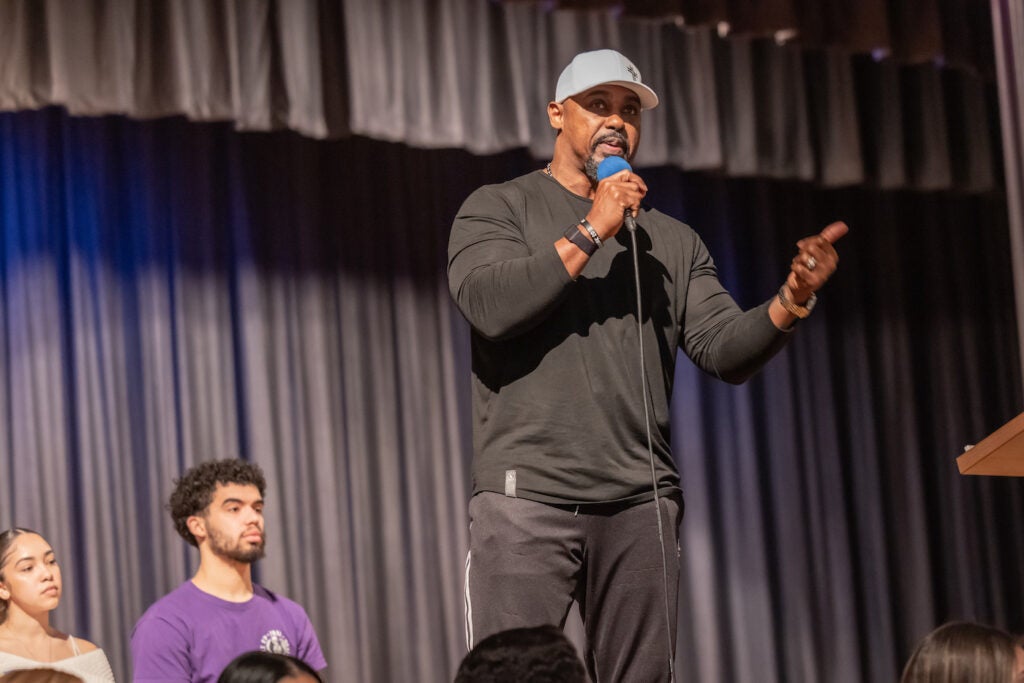
Dawkins spoke to a packed assembly Tuesday at George Washington High School in Northeast Philly.
The Brian Dawkins Impact Foundation and the school partnered to launch “The Young Ambassador program,” which trains students to be ambassadors for themselves, their classmates and members of the community.
The team’s primary focus is how to live with the seemingly continual violence young people contend with. They partnered with Edgework Consulting, a nonprofit organization that works with schools and student leaders to train them how to focus on leadership and team building.
Together, they will teach students strategies to help prevent gun violence and show them skills to cope with violence in the community.
“I feel like a lot of people are scared. A lot of people don’t know what will happen in the future. That’s kind of what we want to fix. We want to give people hope and give them a reason to come to school and get away from the violence,” said 11th-grade student and ambassador, Azmat Lala.
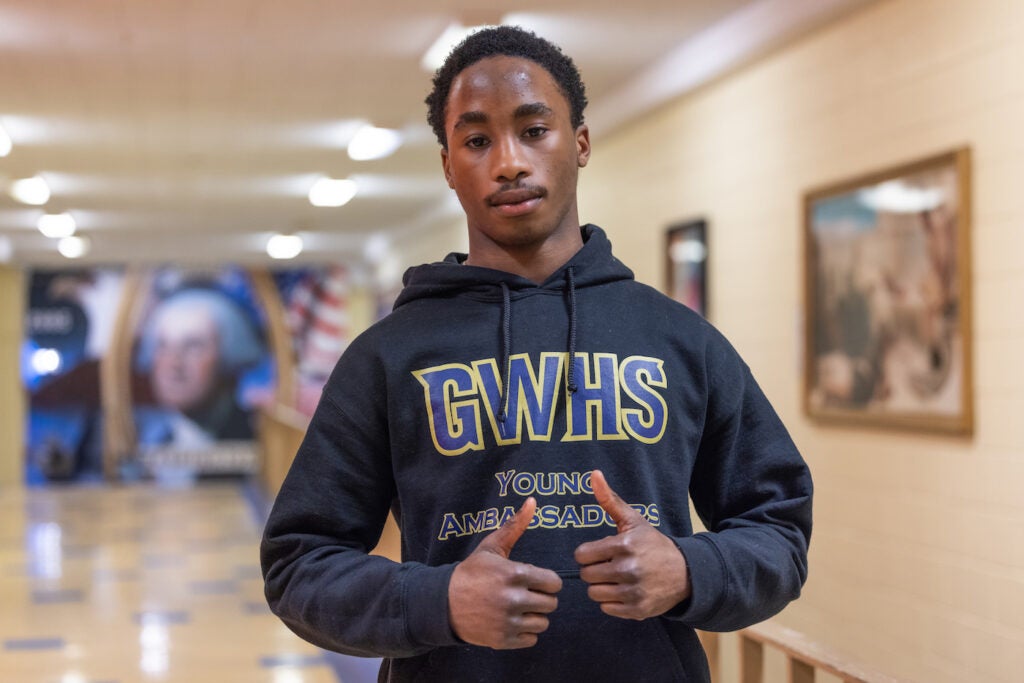
Lala is one of a dozen current and former students who will work in the program. Lala hopes to attend Penn State after he graduates, but like many of his peers, the reality of the violence that surrounds them is a wake-up call to the dangers they face each day.
Just last Wednesday, eight Northeast High School students, ranging in age from 15 to 17, were shot and wounded while they waited to board a city bus after classes.
“Believe it or not, that shooting was basically right outside my doorstep,” said former George Washington High School student and ambassador Joel Muniz, who said the recent shooting hit too close to home.
“The sad thing is, and the traumatizing thing is, my little brother takes that same bus every day, so he was one bust stop short of being in the crossfire. And so when I see things like that, it really hurts me that anybody thinks that’s the solution to the problem. They can’t find a way to deal with it,” said Muniz, who also said many students have become desensitized to the gun violence.
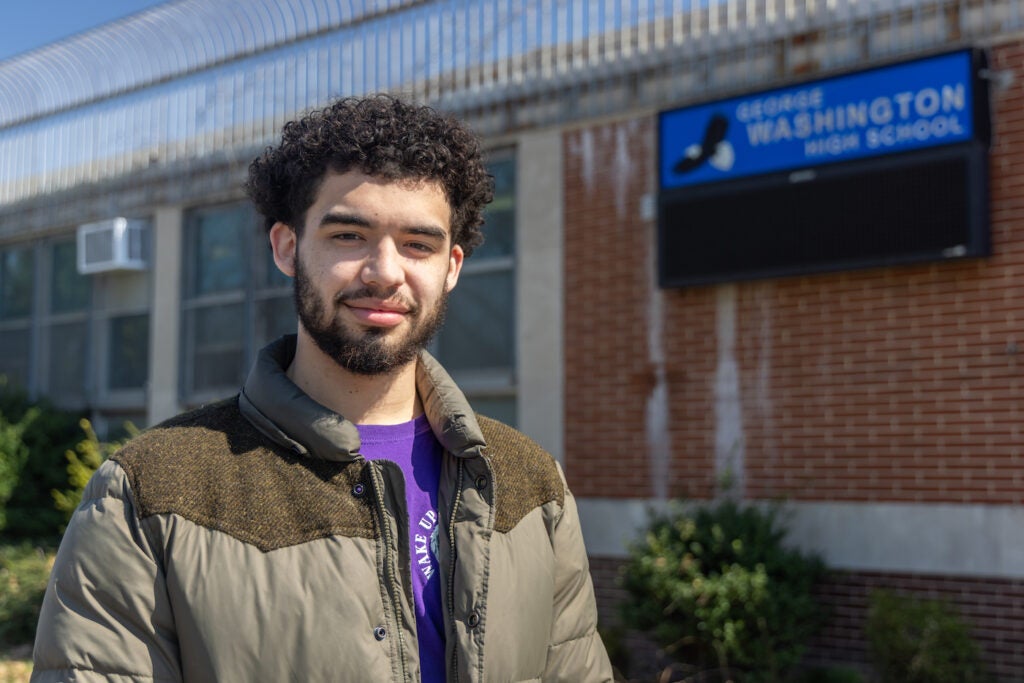
“It’s a pride thing … nobody should mess with me.” Muniz explained that many students don’t quite comprehend the devastation and long-term consequences of these shootings.
“They justify it for themselves. They don’t cope with it because they don’t think there’s anything wrong with it, and it’s sad. I think that’s the most traumatizing part for people who understand the concept,” said Muniz.
“Being taken away from your biggest gift, which is life, is not refundable.”
Dawkins hopes to change the culture and how area youth acknowledge the impacts of gun violence.
Dawkins first visited students at George Washington in 2021. He then decided to partner his foundation with the school to offer resources for single parents, and mental health awareness for students to address the trauma and everyday violence in their communities.
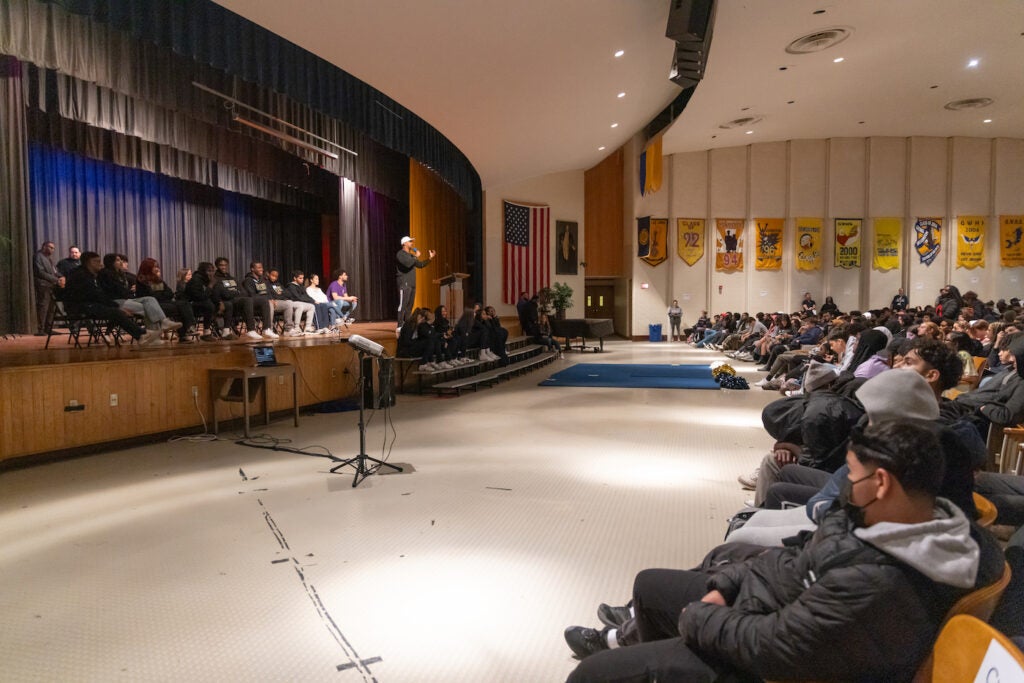
Dawkins said he grew up in an area where violence was common and remembered when he heard gunshots outside of his school. But Dawkins told the crowd they should not let gun violence or their circumstances keep them from being successful.
“Sometimes we get so caught up in the moment and where you are right now. It’s hard for you to see past where you are, but I’m telling you there is so much for you to do,” said Dawkins.
Dawkins spoke to the assembly to kick off the program and share the importance of dealing with trauma. He encouraged students to look past the gun violence impacting their community to find hope and action. He also said students should communicate their feelings with teachers, fellow ambassadors, and friends.
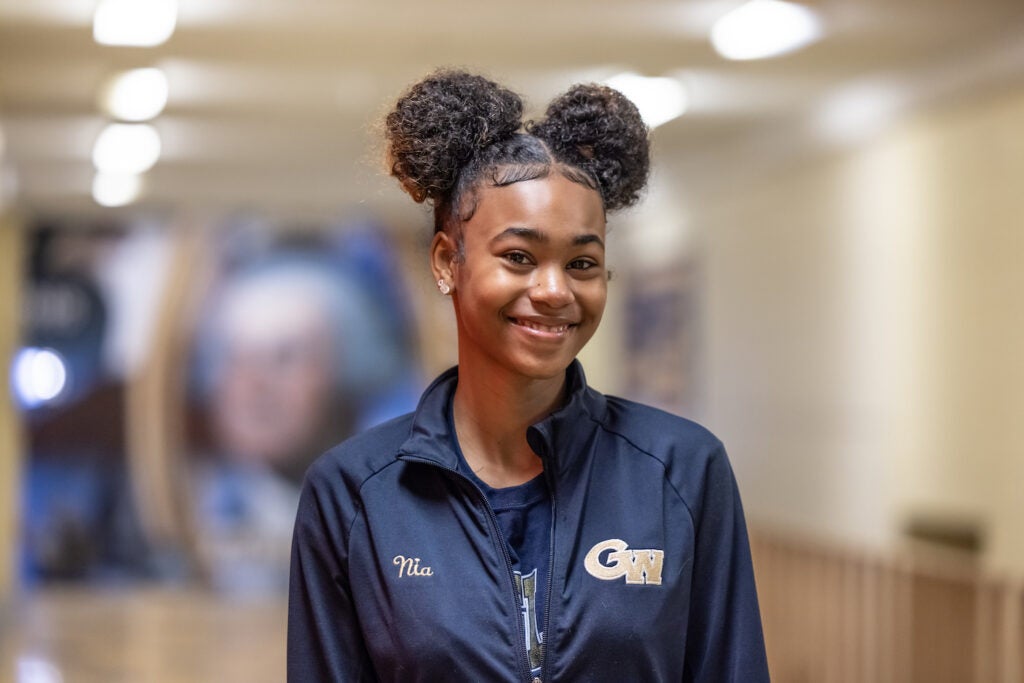
11th-grade student and ambassador Nia Rodgers says she appreciates when teachers create a safe space for her to share how she feels.
“I feel like counselors reaching out, or if they see a kid is a little down, they can ask, ‘Hey are you ok?’ They should find teachers … like that [who can] help because you know you can talk to them and trust them,” said Rodgers.
When asked by a student how he deals with depression, Dawkins said, “What I was able to do was put on a mask every day, so I was pretending every day that everything was fine until I got the help that I needed. Once I got that help, I was able to do things differently.”
Muniz said the ambassador program has changed his life. He said he was once considered a troublemaker at George Washington High School but has since graduated. He now attends Penn State Abington University, where he plans to become a professional sound technician. The college sophomore is paying it forward to inspire other students, as he was inspired by Dawkins, his assistant principal Tony Pitsakis and the program.
“They made me understand that it’s a good thing to be a peaceful member of society, and somebody who wants to succeed and get good grades and realize I have a life past high school,” said Muniz.
The School District of Philadelphia reports that George Washington High School has seen an increase in student emotional well-being. During the 2020-2021 school year, the District launched a student well-being survey, which showed that students’ perceptions about their experiences and relationships at school had improved.

Get daily updates from WHYY News!
WHYY is your source for fact-based, in-depth journalism and information. As a nonprofit organization, we rely on financial support from readers like you. Please give today.


